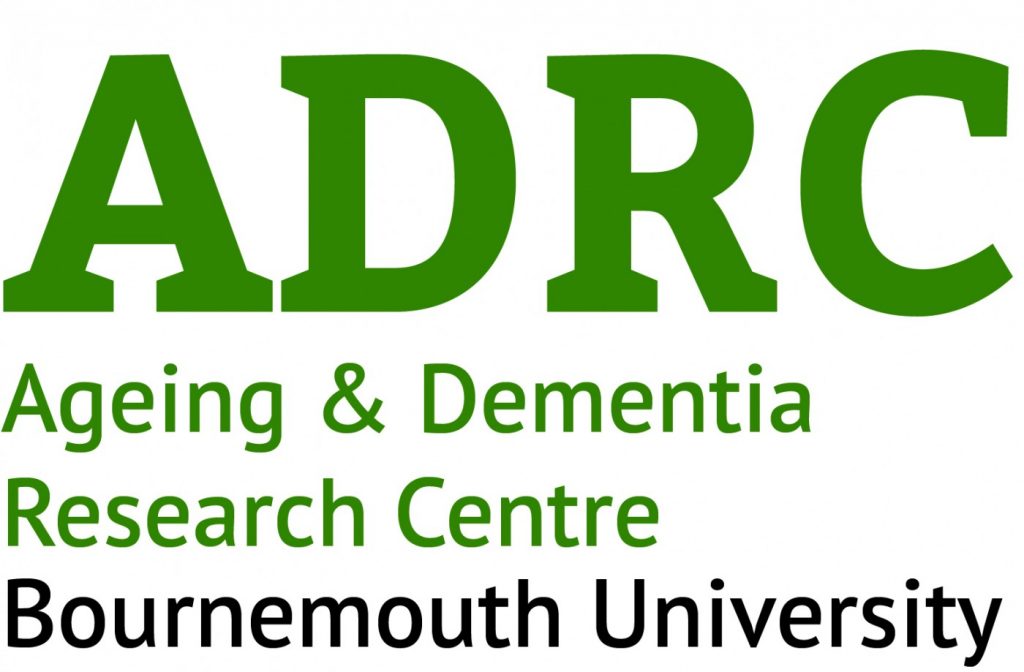
ADRC presented at a BU Public Lecture Day

Latest research and knowledge exchange news at Bournemouth University

 The deadline for expressions of interest for Leaders for UOAs 2 and 3 has been extended to Monday 16 April at 5pm. EoIs should be sent by email to Julie Northam (Head of RKEO).
The deadline for expressions of interest for Leaders for UOAs 2 and 3 has been extended to Monday 16 April at 5pm. EoIs should be sent by email to Julie Northam (Head of RKEO).
BU is preparing submissions for units of assessment (UOAs) for REF 2021. Preparation for each UOA is led by a UOA Leader who is supported by an Impact Champion and an Output Champion. From March 2018, UOA Leaders are recruited via an open and transparent process. All academic staff have the opportunity to put themselves forward for UOA Leader roles. The roles are until December 2020.
We are currently seeking expressions of interest (EoIs) from academic staff interested in leading preparations for two UOAs:
UOA Leaders serve a term up to December 2020, although they can choose to step down during this time. The UOA Leader undertakes a vital role in driving and delivering BU’s REF submission, influencing the University’s preparations, shaping optimal submissions for each UOA and ultimately having a significant effect on BU’s REF 2021 results.
Key responsibilities of the UOA Leader role include:
Being a UOA Leader is a big commitment and is recognised accordingly. UOA Leaders are given time to attend meetings and take responsibility for tasks. As such potential applicants should discuss their workload balance with their Head of Department before applying.
Application process:
To apply for either role, please submit a short statement (suggested length 300 words) stating which role you are interested in and explaining your interest in the role and what you could bring to it. This should be sent by email to Julie Northam by 5pm on Monday 16 April 2018.
The EoIs will be reviewed by a gender balanced panel comprising a DDRPP and a member of the professoriate. Applicants successful at this stage will be invited to an interview with the same panel.
The selection criteria used at EoI and interview stage are outlined below. Each criterion carries a total possible score of 5. The role will be offered to the highest scoring applicant. A member of the panel will provide feedback to all applicants.
Questions:
Questions regarding the process should be directed to Julie Northam (Head of RKEO).
UOA-specific questions should be directed to Prof Vanora Hundley (Deputy Dean for Research in HSS) or to Prof Tiantian Zhang (Deputy Dean for Research in FST)
 Today (12 April) at 5pm is the deadline for EoIs for Leaders for UOAs 2 and 3. EoIs should be sent by email to Julie Northam (Head of RKEO).
Today (12 April) at 5pm is the deadline for EoIs for Leaders for UOAs 2 and 3. EoIs should be sent by email to Julie Northam (Head of RKEO).
BU is preparing submissions for units of assessment (UOAs) for REF 2021. Preparation for each UOA is led by a UOA Leader who is supported by an Impact Champion and an Output Champion. From March 2018, UOA Leaders are recruited via an open and transparent process. All academic staff have the opportunity to put themselves forward for UOA Leader roles. The roles are until December 2020.
We are currently seeking expressions of interest (EoIs) from academic staff interested in leading preparations for two UOAs:
UOA Leaders serve a term up to December 2020, although they can choose to step down during this time. The UOA Leader undertakes a vital role in driving and delivering BU’s REF submission, influencing the University’s preparations, shaping optimal submissions for each UOA and ultimately having a significant effect on BU’s REF 2021 results.
Key responsibilities of the UOA Leader role include:
Being a UOA Leader is a big commitment and is recognised accordingly. UOA Leaders are given time to attend meetings and take responsibility for tasks. As such potential applicants should discuss their workload balance with their Head of Department before applying.
Application process:
To apply for either role, please submit a short statement (suggested length 300 words) stating which role you are interested in and explaining your interest in the role and what you could bring to it. This should be sent by email to Julie Northam by 5pm on Thursday 12 April 2018.
The EoIs will be reviewed by a gender balanced panel comprising a DDRPP and a member of the professoriate. Applicants successful at this stage will be invited to an interview with the same panel.
The selection criteria used at EoI and interview stage are outlined below. Each criterion carries a total possible score of 5. The role will be offered to the highest scoring applicant. A member of the panel will provide feedback to all applicants.
Questions:
Questions regarding the process should be directed to Julie Northam (Head of RKEO).
UOA-specific questions should be directed to Prof Vanora Hundley (Deputy Dean for Research in HSS) or to Prof Tiantian Zhang (Deputy Dean for Research in FST)
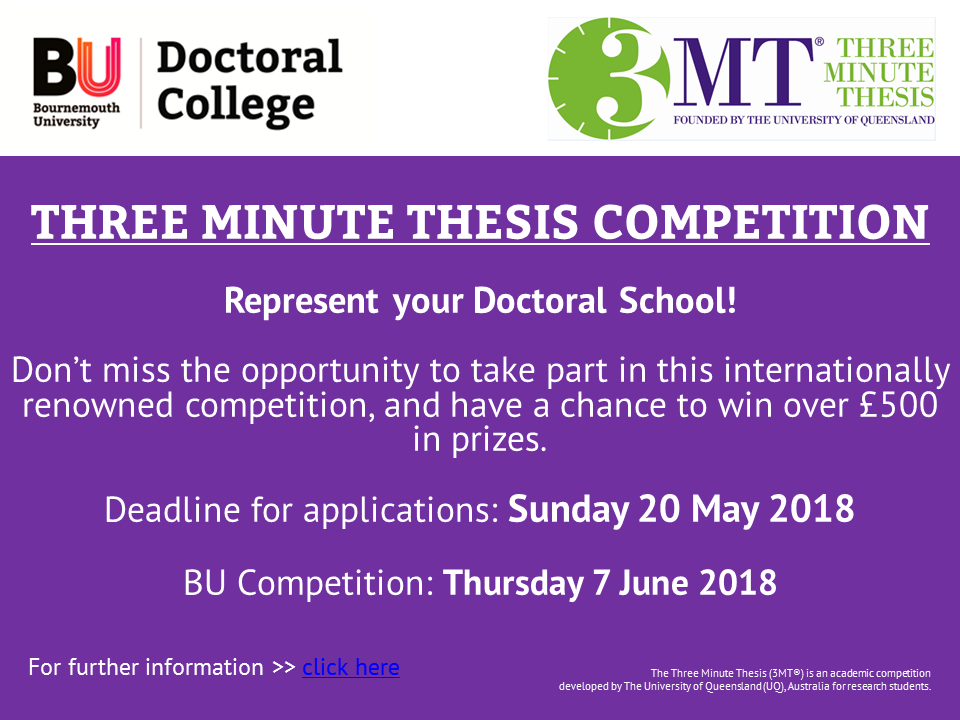
The 13th Congress of the International Society for the Study of Fatty Acids and Lipids (ISSFAL) http://www.issfal.org/ will be held in Las Vegas, USA in May 2018. BU will be highly represented at this biennial congress, which is the biggest and most prestigious congress in the field of fatty acid and lipid research. Isabell Nessel, a third year PhD student in the Faculty of Health and Social Sciences, will present her PhD work at this congress. She is supervised by Dr Simon Dyall and Prof Minesh Khashu.
Her research aims to investigate ways to increase the intake of long-chain polyunsaturated fatty acids in the perinatal period and to address whether this intake is associated with any adverse effects, due to the susceptibility of the fatty acids to oxygen-related damage. Isabell secures a prestigious oral presentation, and is also presenting two posters at this international congress, which expects around 800 delegates!
Isabell was awarded a full Santander Mobility Award to cover the travel costs to Las Vegas. Furthermore, Isabell won a New Investigator Award, which is granted by ISSFAL in conjunction with the Congress to recognise and encourage excellent abstract submissions.
The Congress will be an excellent opportunity for her to present her PhD work, and to learn about the latest research and the newest methods.
Isabell would like to express her gratitude to Santander, ISSFAL, and Bournemouth University for making this trip possible, and to her supervisors Dr Simon Dyall and Prof Minesh Khashu for their support with the applications and abstracts!
Look out for her blog post after the conference.
If you would like to know more about her research in the meantime, e-mail her at inessel@bournemouth.ac.uk
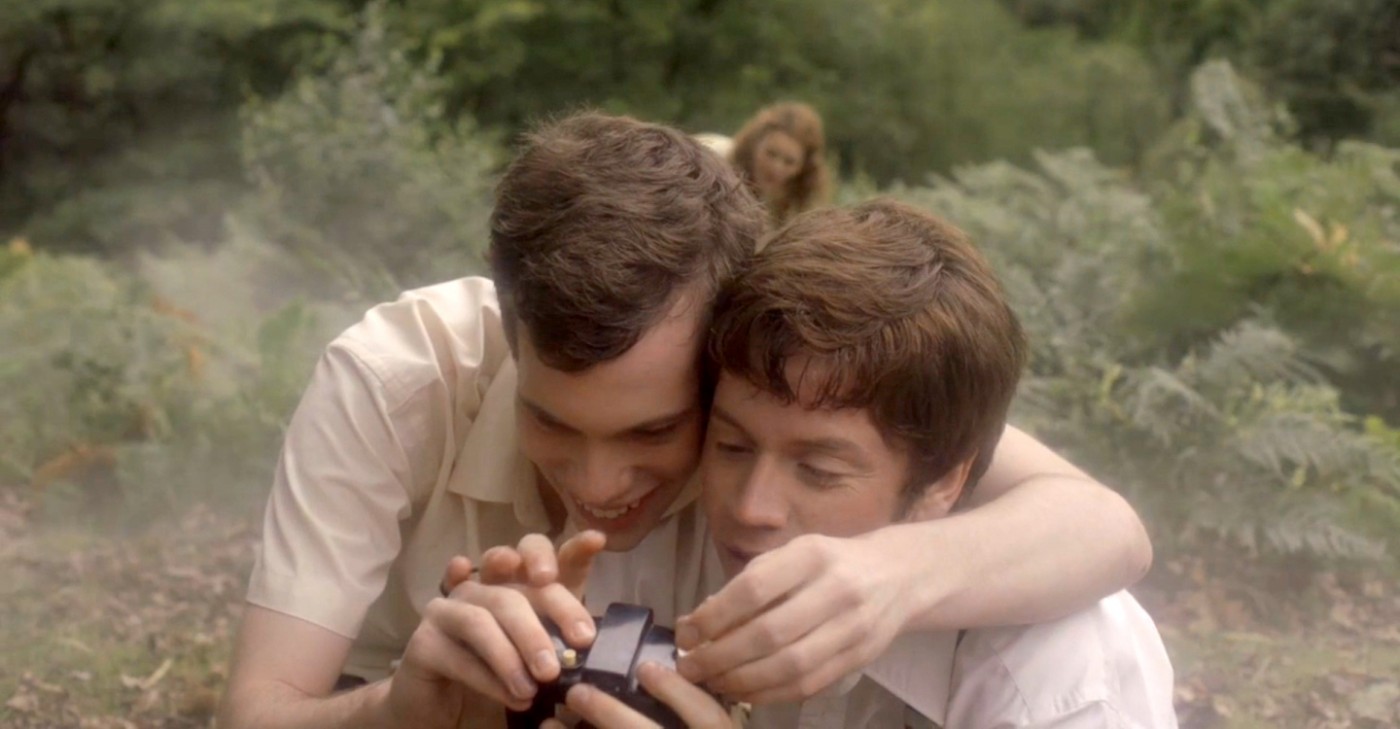
 The Japan Society for the Promotion of Science has announced that the final call in financial year 2018 for their Short Term Pre/Postdoctoral Fellowships is now open.
The Japan Society for the Promotion of Science has announced that the final call in financial year 2018 for their Short Term Pre/Postdoctoral Fellowships is now open.
Please visit the JSPS London website for further information.
The deadline is: Friday, 1st June 2018 and fellowships must start between 1st November 2018 to 31st March 2019.
Japan Society for the Promotion of Science (JSPS) is the leading research funding agency in Japan, established by the Japanese Government for the purpose of contributing to the advancement of science.
Their Pre/Postdoctoral Fellowship for Foreign Researchers (Short Term) provides the opportunity for researchers based outside of Japan to conduct collaborative research activities with leading research groups at Japanese Universities and Research Institutions for visits of between 1 to 12 months. Eligible applicants need to be either within 2 years of finishing their PhD at the time of applying to start their fellowship in Japan or have obtained their PhD after 2nd April 2012. Eligible research fields are not limited.
Read the reports from former JSPS Fellows who have taken part in this programme.
BU staff wishing to apply should contact the relevant member of RKEO for their faculty.
 An exciting new research project will be launched this Saturday and the team is getting ready. Last November during the ESRC Festival young people told us what they liked doing outdoors. Next Saturday the research team from across BU will be releasing the top ten favourite things that young people enjoyed outdoors on a rock drop in partnership with Bournemouth Rocks. Young people can find out the results of our research and help develop our study by logging their finds and sharing their use of green space with the research team – Dr Holly Crossen-White, Dr Nathan Farrell and Dr Angela Turner-Wilson. The Rock Drop site will be released on Friday on social media (more…)
An exciting new research project will be launched this Saturday and the team is getting ready. Last November during the ESRC Festival young people told us what they liked doing outdoors. Next Saturday the research team from across BU will be releasing the top ten favourite things that young people enjoyed outdoors on a rock drop in partnership with Bournemouth Rocks. Young people can find out the results of our research and help develop our study by logging their finds and sharing their use of green space with the research team – Dr Holly Crossen-White, Dr Nathan Farrell and Dr Angela Turner-Wilson. The Rock Drop site will be released on Friday on social media (more…)
Do you wonder how best to engage with pre-award processes at BU?
Are research application finances a bit of a mystery?
Does the costing side of your research application deter you from applying?
Are you not quite sure where to start?
If so, then come along to these sessions on Wednesday, 18th April at Talbot Campus:
Please follow the links above to reserve your place at as many of these events as you are able to attend. You will then receive a meeting request confirming the location of each session.
If you need help outside these workshops, please contact relevant member of the Funding Development Team in the Research & Knowledge Exchange Office.

EPA/Tibor Illyes
With more than 278,000 followers on Facebook, Hungary’s Two-Tailed Dog Party was the the most popular party on social media to stand in the country’s 2018 election. However, its online popularity did not help win seats in the vote which delivered Viktor Orbán a third term as prime minister by a landslide. In an anti-establishment approach, the Dogs’ campaign was carried out entirely by volunteers and official campaign funds were used to support community projects.
Despite only coming away with 1.71% of the votes, however, the party has pushed an important boundary in Hungarian politics.
The Two-Tailed Dog Party was founded in 2006, although formal recognition didn’t come until 2014. It defined itself as a joke party from the start, becoming famous for making fun of other political groups – mainly the mainstream Fidesz, led by Orbán.
Its activities range from street art to graffiti to urban gardening. It even smuggles soap and toilet paper into hospitals in order to highlight the dire state of some healthcare facilities. In 2016, the party crowdfunded €100,000 to cover the country in satirical posters mocking the government’s call to vote against EU refugee quotas in an impending referendum.
Then in 2018, just a couple of weeks before the deadline, the party managed to get enough signatures to be able to participate in the national parliamentary elections. The jokers were getting serious.
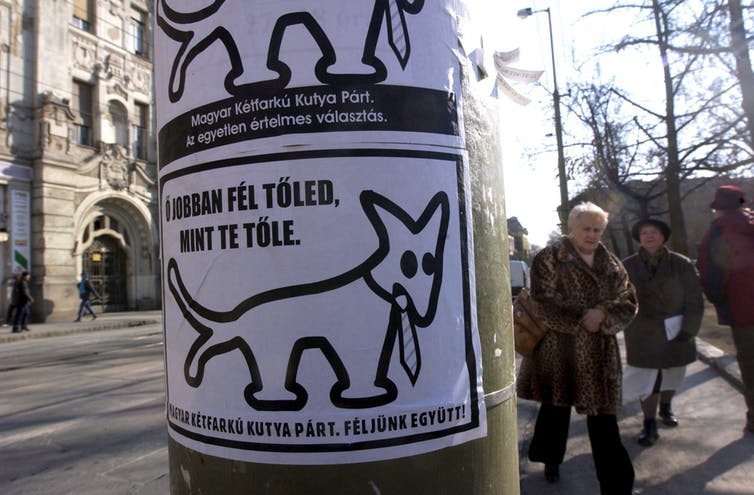
A Two-Tailed Dog sticker appears on a Budapest lamp post.
In an election campaign dominated by the supposed “threat” posed by immigration and the perceived influx of migrants to Hungary, the Two-Tailed Dog party used social media to draw attention to a statistic published on the national police website showing that one migrant had been “caught” in the last 30 days. Its satirical response to this shocking figure read: “There is an enormous interest in our country. But we cannot rest assured: The migrant entered our country.”
All political parties use emotions to persuade people to vote for them. The Two-Tailed Dog party and its kind are trying to undermine establishment organisations by turning humour into political action.
In a process social scientists call “kynicism”, the Two-Tailed Dog party borrowed and remixed government messages for its own aims. The idea is to mock the government’s rhetoric in order to disperse fear and anxiety.
In Hungary, it’s unclear what the future holds for the Two-Tailed Dog party, or these joke parties more broadly. There is a fundamental mismatch between the way everyday politics works and the vision of the party.
Party leader Gergő Kovács told us:
I can’t really tell how many of our Facebook fans would vote for us … To be honest, for me the parliamentary elections are not important. For me, it’s much more important to see what we can do … I have to confess: my aim is to create something creative and funny, and yet meaningful … I think it is useless to have one more opposition party that has a serious programme. I have no interest to do politics in the traditional way.
If the case of Iceland’s Pirate party shows us anything, it is that parties like the Two-Tailed Dog have a tendency to lose their edge once they gain political influence. In 2016 the pirates topped opinion polls, and seemed to become a real political force by winning ten seats in the parliament. However, in the latest elections, they won only six seats.
Alternative parties, like the Two-Tailed Dog exist to mock from outside the mainstream. But what’s the point of a political party if it doesn’t really want to get elected and to introduce its policies?
For now, that’s not a question the Two-Tailed dogs need to answer, since they failed to make it into parliament.
But the group has nonetheless radically re-energised young people. It has tested the limits of convention in Hungary’s political process. Kovács told us that when it comes to larger campaigns, “two thirds, or three quarters, of our ideas come from the people … For instance, we write an economic programme, post it to Facebook and in a couple of minutes, there are three to four better ideas in the comments, so we take it down and add these ideas. So, in fact it really comes from the people”. The next step is for the group to translate those likes on social media into actual votes.
Annamaria Neag, Marie Curie Research Fellow, Bournemouth University and Richard Berger, Associate Professor, Head of Research and Professional Practice, Department of Media Production, Bournemouth University
This article was originally published on The Conversation. Read the original article.
On the 11th April Dr Andrea Padilla-Munoz from the University of Rosario, Bogota, Colombia will be visiting Bournemouth University. Andrea is a qualified lawyer and academic with an interest in ageing, human rights, disability and inclusion.
During her visit, she is keen to meet with other BU academics to explore potential future collaborations. To support this, I will be hosting a workshop on the 11th April in the Fusion Building, F111 from 11am-1pm, where Andrea will provide an overview of her research. There will also be time to discuss future research ideas with her over tea and coffee.
If you are interested in attending please let me know, so I have an idea of numbers and can book refreshments accordingly. Alternatively, if you are unable to make the workshop but would like to meet with Andrea, let me know and we can arrange something.
Email: bhicks@bournemouth.ac.uk
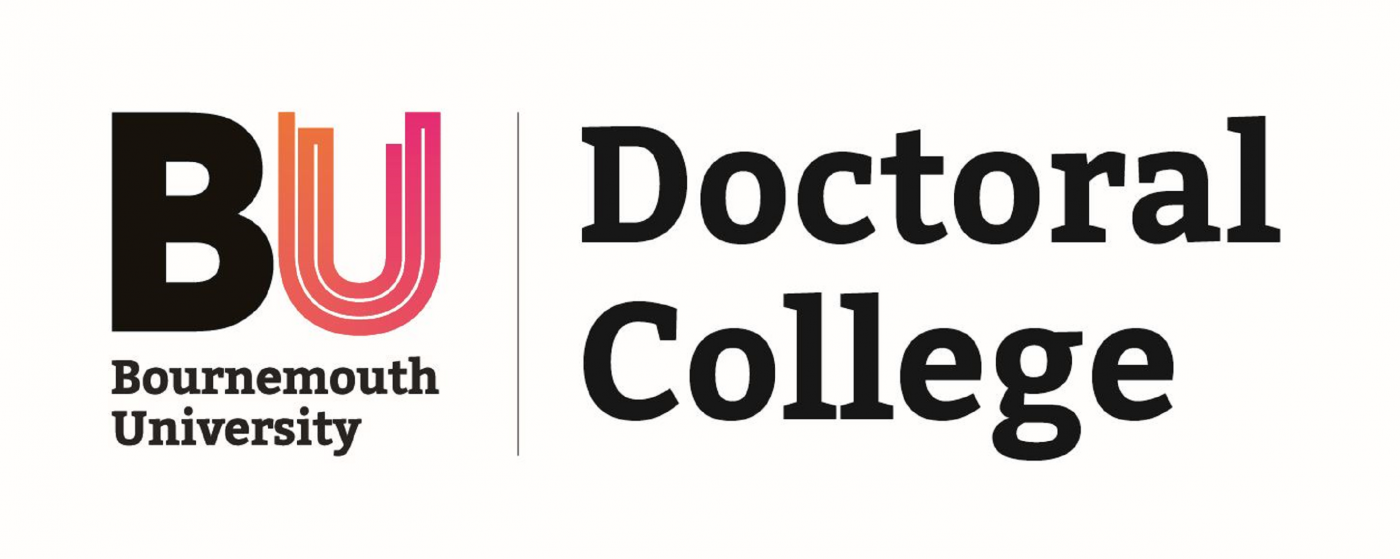
On Wednesday 7 March 2018 the Doctoral College hosted the 10th Annual Postgraduate Research Conference which brought together and recognised the excellence of BU’s postgraduate research.
Meet this year’s winners:
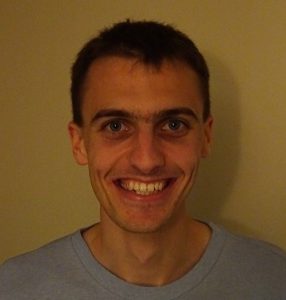 |
Mark Stevens, Faculty of Management
Research topic: A social identity approach to understanding physical activity. Why I chose this research topic: As a regular runner, and someone who engages in a lot of physical activity myself, I am a strong believer that being active should be a priority for us all. Having also seen first hand the issues being inactive can cause, and being aware of the scale of the inactivity crisis we are facing on a global scale, I am passionate about understanding the factors that influence people’s physical activity levels and devising effective ways of getting—and keeping—people more active. Example of how research at BU has changed things for me: My PhD has given me the opportunity to learn a wide variety of new skills and develop my existing skills in several areas. For example, working closely with my supervisors, collaborating with researchers around the world, and working to publish journal articles has helped me learn several advanced methods of statistical analysis and develop my academic writing. Quick quote: Following on the physical activity theme, but also a good thought about working hard: “Nobody ever drowned in their own sweat!” |
 |
Stephen Allard, Faculty of Media & Communication
Research topic: When does Page become Stage: Exploring Evolving Poetic Practices in Digital Spaces. Why I chose this topic: The growth and popularity of social media sites, especially within the last decade, has arguably forever changed the way that we imagine, interact with, and relate to, each other. With increasing cynicism towards these new social worlds of words, with terms such as ‘fake news’ ingrained in the public consciousness, I am fascinated by how poets might add their voices to these new social frontiers. If a search for truth about online interaction is currently only revealing something increasingly seen as fake, then can perhaps poets, using something fictional, reveal new truths about ourselves, and each other, online? Example of how research at BU has changed things for me: Bournemouth University has a rich, diverse, and interactive postgraduate research community, that actually feels like a community. Through events, workshops, and talks, I have gained the opportunity to work with a range of talented and passionate researchers, working across many fields and in many disciplines. This has not only pushed the boundaries and possibilities of my own research, but also opened up new opportunities, and completely new ways of thinking about the postgraduate experience. Quick quote: Oscar Wilde: ‘Everything in moderation, including moderation’ |
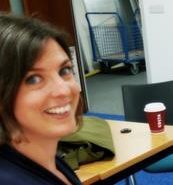 |
Louise Oliver, Faculty of Health & Social Sciences
Research topic: Family Narratives of Child-to-Parent Violence and Abuse: Lifting the Veil of Secrecy Why I chose this topic: I have worked within Children’s Social Care for over a decade, with a focus on working with family violence and abuse. As part of my practice, it became apparent that there was a dearth of research about children who are controlling, aggressive and/or violent towards their parents, as well as limited targeted support for families experiencing child-to-parent violence and abuse. This motivated me to study this form of family violence and abuse in order to further prevent, intervene and support families experiencing this. Example of how research at BU has changed things for me: This research has helped in many ways, it has helped develop my practice by improving my theoretical understanding of family violence and abuse, and I have been able to incorporate this within my practice. I am also in a position that I am able to offer advice and guidance to my colleagues. Quick quote: “…a moment of silence, a question without answer, provokes a breach without reconciliation where the world is forced to question itself” (Foucault 1967) |
| Amal Musa Almoualed, Faculty of Media & Communication
Research topic: Saudi Women Journalists—An Exploration of Their Role and Practice in an Age of National Transformation Why I chose this topic: The advancement, development and empowerment of women is a lifelong interest of mine, something I wish to study and achieve in my personal and professional life. This motivated me to approach my research from both sides—‘journalism’ and ‘women’—in order to combine my joint passions for journalism research and the advancement of women. Example of how research at BU has changed things for me: Being a researcher in Women and Journalism at Bournemouth University has developed my personal and professional skills and exposed me to other cultures. This has helped broaden my horizons and also helps me communicate more effectively with professionals and colleagues from different cultures. Quick quote: These are two of my own quotes, which I always recall whenever I need to encourage myself to continue pursuing my dreams: ‘Being a woman means to have patience, determination, enthusiasm and confidence as you challenge any barriers that limit your success in your personal and professional life.’ ‘Some women seek to be pretty and work hard to remain pretty their entire life; however, I believe my prettiness is determined by being mindful, ambitious, and successful in achieving my goals.’ |
|
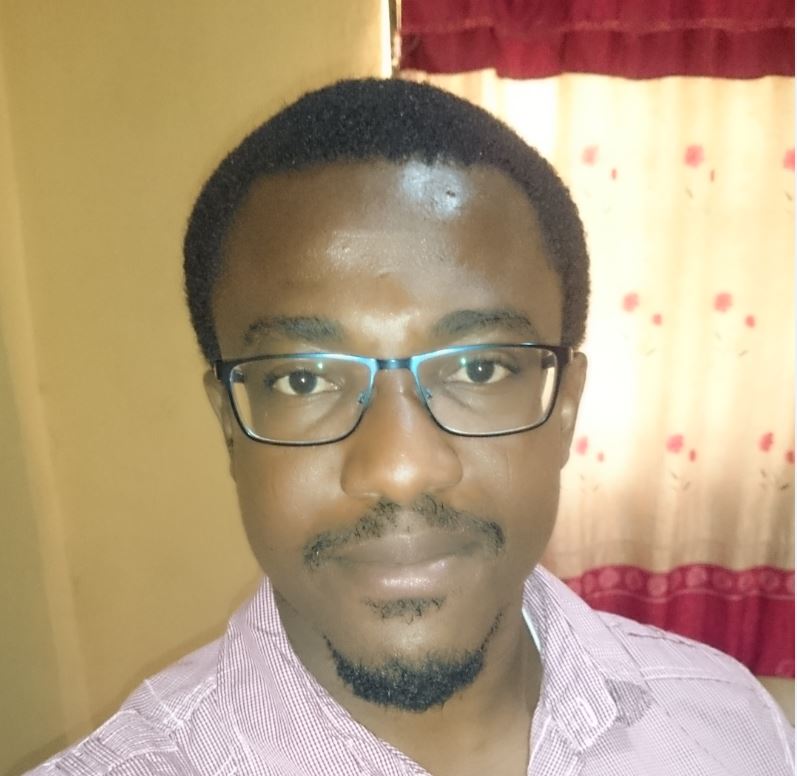 |
Ejike T. Ezeh, Faculty of Health & Social Sciences
Research topic: Shared decision-making: investigating the potential of an interactive, web-based information tool to support treatment choice of people with advanced pancreatic cancer Why I chose this topic: I have always been interested in the impact of information technology in healthcare, and when the opportunity became available, I applied and was selected. Also, being able to help people in making important decisions about their health is a rewarding experience for me. Example of how research at BU has changed things for me: Research has taught me that you have to be very thorough and systematic even in the most basic things in life. Someone may build on your work in the future. I am more careful in my utterances as well. There must be sufficient evidence to support them. Quick quote: When the going gets extremely tough, then you are close to a breakthrough. |
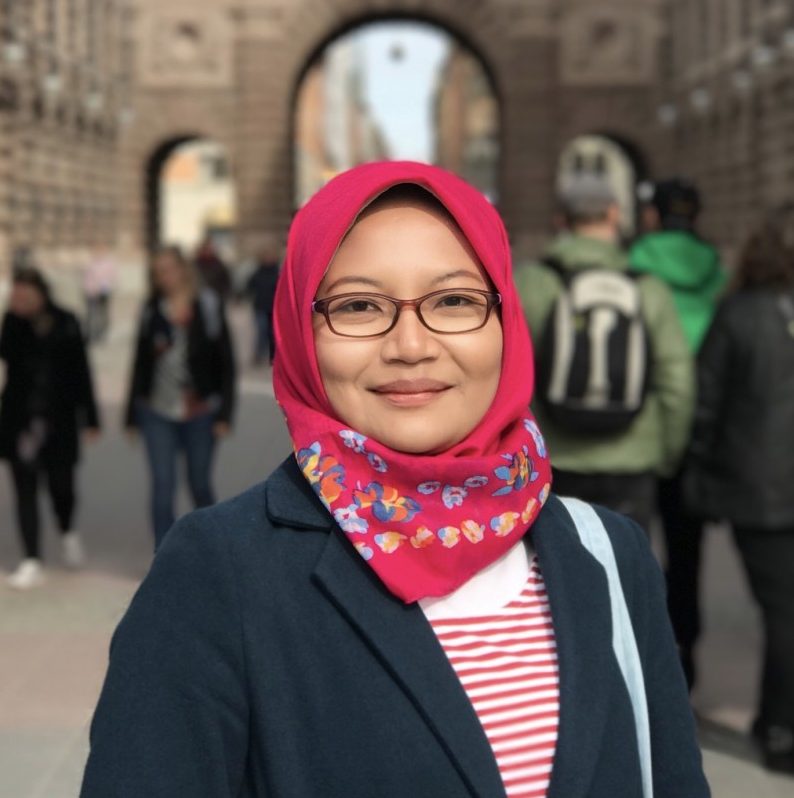 |
Nurist Surayya Ulfa, Faculty of Media & Communication
Research topic: I am undertaking a PhD on ‘the digital virtual consumption practices and commercial enculturation among Indonesian Muslim girls’. In particular, the work aims to account for how Indonesian Muslim girls’ engagement with DVC in Girls games shapes both their literacy of and desire for Western consumer culture and the role of Islam in the process. By doing this, enables me to shed light on the interplay between market and religion under the consumer culture theory traditions. Why I chose this topic: Since 2009, as an academia in Diponegoro University Indonesia, I have been interested in studying children and marketing communication themes in Indonesia. My PhD problematization derived from my previous finding on Muslim children engagements with local and global media practices. Example of how research at BU has changed things for me: Undertaking PhD in Bournemouth University is a journey that I have thoroughly enjoyed so far. The reliable and supportive supervisory team is obviously the best part of my PhD journey. By way of their guidance, I have learned a lot about my research area and had valuable opportunities to develop myself. |
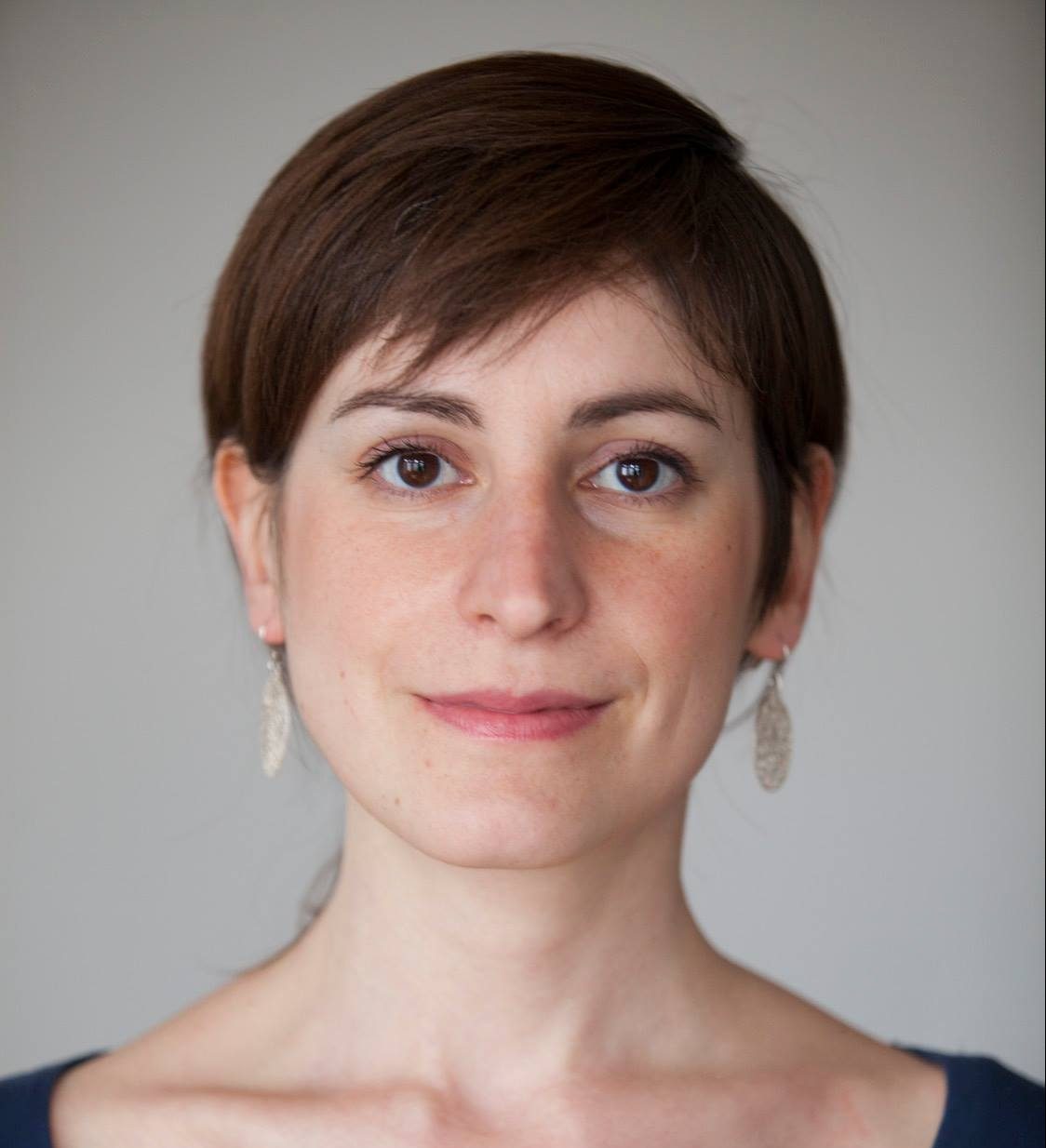 |
Giulia Levi, Faculty of Health & Social Sciences
Research topic: Between silence and agitation. Coping strategies and third-party interventions in divided societies: a comparison between post-conflict Bosnia and post-referendum UK. Why I chose this topic: The Brexit referendum has favoured the emergence of new lines of division in the British society. After years working in civil society organisations operating in divided contexts I have seen how initiatives to bridge societal divisions often apply standardised models overlooking the specificities of the contexts and of the people they work with. My project looks at how such initiatives are experienced by beneficiaries in order to develop a more socio-culturally sensitive approach. Example of how research at BU has changed things for me: Since I started my PhD I’ve had the chance to participate in workshops and conferences, meeting researchers I could discuss my ideas with. As part of my research I am exploring the cultural diversity of Dorset collaborating with civil society organizations on the ground that work on hate crime prevention and victims’ support. Quick quote: ‘Every culture is always on a nomadic path’ (M. Engelke) |
 BU will be launching a new network for Early Career Researchers later in 2018
BU will be launching a new network for Early Career Researchers later in 2018
If you are an ECR* or interested in the development of ECRs at BU, please sign up to attend this pre-launch meeting to discuss your ideas and expectation of this new network. Priority will be given to ECRs in the first instance, but whatever your role at BU, please sign up as your input will be most welcome.
This session will take place at Talbot Campus on Wednesday, 25th April, from 13:00 – 15:00, with refreshments, but not lunch, provided. Please feel free to bring your lunch.
BU Staff – Reserve your place now!
*an ECR, in this case, is defined as someone who started their research career on or after 1 August 2013. This is the point at which they held a contract of employment of 0.2 FTE or greater, which included a primary employment function of undertaking ‘research’ or ‘teaching and research’, with any HE or other organisation, whether in the UK or overseas.
 Will you be applying to the Acorn Fund (Acceleration Of Research & Networking) for Early Career Researchers?
Will you be applying to the Acorn Fund (Acceleration Of Research & Networking) for Early Career Researchers?
This new scheme will provide c. five awards, of up to £5,000 each, to support BU’s ECRs, with the most promising talent, to gain experience of managing and leading their own pilot research projects. These award support BU’s commitment to the Concordat to Support to Career Development of Researchers and is made possible by the BU Fusion Investment Fund
There will be a strong link to the new ECR Network and the ECR Showcase event, also being launched in 2018. In this way, those who do not benefit directly from the Acorn funds scheme by receiving funding, will benefit indirectly though interaction with those ECRs who receive support via the scheme.
For eligibility, an ECR in this case is defined as someone who started their research career on or after 1 August 2013. This is the point at which they held a contract of employment of 0.2 FTE or greater, which included a primary employment function of undertaking ‘research’ or ‘teaching and research’, with any HE or other organisation, whether in the UK or overseas.
To assist with the budget section, please refer to the RKE Sample Costs, within the Research > Pre-award area on the staff intranet.
Find out more and apply.
The closing date for applications is 18th April 2018. As these require faculty support, start your application and obtain faculty approval as soon as possible. Applicants are responsible for obtaining an electronic faculty signature and for submitting the application to the email below.
Please address any queries to RKEDevFramework@bournemouth.ac.uk.
 With the official launch of the UKRI last week, they now have a new website. Visit it here: https://www.ukri.org/
With the official launch of the UKRI last week, they now have a new website. Visit it here: https://www.ukri.org/
The new web pages will include content and contacts from UK Research and Innovation, as well as content moved over from the archived Research Councils UK website. It also includes a letter from Sir Mark Walport to mark the commencement of UK Research and Innovation, and the launch of the exciting new Leaders Fellowship Scheme (see blog post on funding opportunity and how to apply for BU staff).
 We’re excited to announce that we are joining forces with Pint of Science again this year to bring science back to the pubs of Bournemouth.
We’re excited to announce that we are joining forces with Pint of Science again this year to bring science back to the pubs of Bournemouth.
Join us on the 14-16 May 2018 for evenings that’ll quench your thirst for scientific knowledge delivered to you over your favourite pint. This year we are exploring the fascinating topics of Beautiful Mind at The Four Horsemen and Our Body at Chaplin’s Cellar Bar. The full list of evening themes and the complete programme of talks are available to browse now here.
Fancy joining us? Well, you’re in luck! Tickets are available for the bargain price of £4, and are on sale at midday today from the Pint of Science website.
To celebrate the official ticket launch of Bournemouth’s Pint of Science 2018, join us at Chaplin’s Cellar Bar on Wednesday 18th April for the Half-Pint Pub Quiz. Gather yourself a team and come and show off your quizzing capabilities from 6:30pm. You could be in with a chance to nab yourself some amazing Pint of Science goodies!
 The UKRI Future Leaders Fellowship scheme (FLF) aims to develop, retain, attract and sustain research and innovation talent in the UK. Providing up to seven years of funding, for at least 550 early-career researchers and innovators, the scheme will tackle difficult and novel challenges.
The UKRI Future Leaders Fellowship scheme (FLF) aims to develop, retain, attract and sustain research and innovation talent in the UK. Providing up to seven years of funding, for at least 550 early-career researchers and innovators, the scheme will tackle difficult and novel challenges.
UKRI Future Leaders Fellowships can be held at any UK-based organisation currently registered as eligible to apply to the research councils (for example higher education institutes, research council institutes and eligible independent research organisations), or Innovate UK. Companies or other privately owned research organisations are encouraged to host UKRI Future Leaders Fellowships if they can provide an innovation and/or research environment of international standing.
There will be six calls for the FLFs, with two calls taking place each year over the next three years. Applications can be submitted in any area of research or innovation covered by the Research Councils and Innovate UK.
The submission deadline for the first FLF call is 3 July 2018, with a mandatory Expression of Interest required by 7 June.
For further information visit the Future Leaders Fellowships call page. If you wish to discuss this opportunity in more detail and/or find companies to work with then please contact Ehren Milner.
If you are interested in applying then please contact your RKEO Funding Development Officer in the first instance.
Do you want to know more about our fourth call for project proposals?
Are you looking for project partners or do you have a project idea to share?
Would you like to network and build new contacts?

Then join the Interreg Europe team on Friday 13 April 2018 at 10am (Paris time) a two-hour online event dedicated to networking, partner search, and information about their new project call.
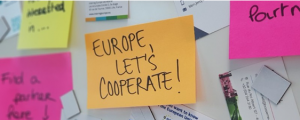 During #europecooperates online, you will:
During #europecooperates online, you will:
The event is fully online, so you can participate from wherever you are. The event will be streamed live on the #europecooperates website as well as on Facebook.
Furthermore, you can start sharing your ideas and send them your questions already before the event. To help you connect with the other participants, they will open the online chat rooms on Wednesday 11 April, two days ahead of the live stream.
See the programme for more information, register now and get ready to network!
The Interreg Europe team is looking forward to seeing you online!
If you wish to apply for this call or other European funding calls, please contact your Faculty’s Research Facilitator – FMC & FM: Alex Pekalski or for FHSS and FST: Rachel Clarke